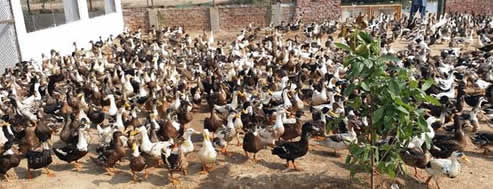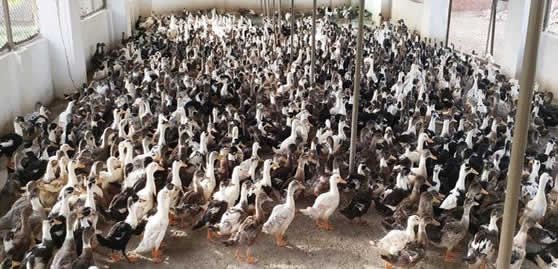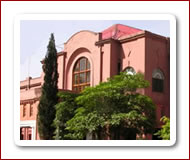UVAS Ducks Farms
Pakistan is amongst top ten most populous countries of the world and above than 50% of the population lives in rural areas. Besides financial constraints the people are facing serious issues of disease outbreak because there are big reservoirs of waste water that are places of many pathogens. Control of these pathogens is necessary for the betterment of the inhabitants of rural areas. Rearing of ducks not only aids in biological control of insect pests but also enhances aesthetics of the rural areas. In addition, the meat and eggs of ducks are the source of income. Ducks rearing was a traditional source of protein in rural areas but during late 1990s the exotic breeds being better egg producer, replaced local traditional breed. The rearing of these ducks eventually faced a failure because of less resistance towards the local environmental conditions and peoples’ preference towards meat and eggs of local breeds.


Keeping in view the importance of ducks in ecosystems and as source of protein, University of Veterinary and Animal Sciences has taken a step and established ducks farm at Ravi Campus.
The main objectives of rearing of ducks include;
- Biological control of pests and parasites: The wastewater ponds and stagnant water bodies in villages are the major source of insect larvae, endoparasites and ectoparasites that area health hazard for livestock and humans. The ducks are important biological control agents and have natural tendency of foraging on aquatic weeds, algae, green legumes, fungi, earthworms, maggots, snails and endoparasites and ectoparasites that cause diseases to humans, animals and crops.

- Villagers know, how to rear local ducks: Ducks rearing is not a new activity in Pakistan and traditionally people used to rear the ducks. These birds require less expensive, simple and non-elaborate housing facilities. They are very hardy, resistant to environmental conditions and common avian diseases and require less care than chicken.
- Cleaning of heap filth and human and animals wastes: Local ducks are best screeners and can get their food from human and livestock wastes and provide many ecosystem services.
- Best source of organic protein for local/ communities: The eggs of the ducks are suitable for pregnant women and children. Meat of the ducks is also an important source of quality protein especially for poor and lower middle communities of the villages.
- Resistant to various diseases as compared to Khaki Campbell: Local breeds of the ducks can easily withstand local environmental conditions and are resistant to many common avian diseases.
- Easy to rear: The duck require simple non-elaborative structures and can be easily reared with primary productivity of local water ponds hence supplementary feeding is not mandatory.
- Livelihood support/Poverty alleviation: Raising of ducks will help in poverty alleviation of the local people.

|






